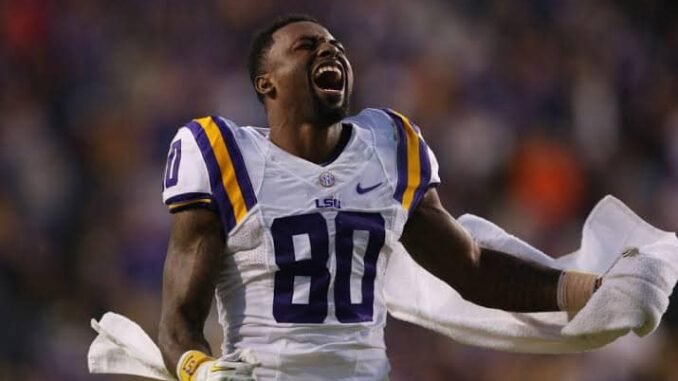
The Unseen Burden: How a 5-Star LSU Signee Fought a Silent Battle with Panic Attacks
In the high-stakes world of college football, where every play, every practice, and every performance is meticulously scrutinized, the pressure to be perfect is immense. For a 5-star recruit, that pressure is amplified a hundredfold. They are not just players; they are the saviors of a program, the hope of a fanbase, and the embodiment of a university’s championship aspirations. But beneath the surface of the hype and the accolades, a quiet battle is often being fought—a battle with a hidden opponent: anxiety.
In a poignant and deeply personal interview, one of LSU’s top 5-star signees has bravely opened up about his private struggle with panic attacks during games, revealing a side of the sport that the cameras and commentators never capture. “Nobody knew,” he admitted, his voice soft but resolute. “I would be in the middle of a play, and my heart would just start racing. My hands would get clammy, my vision would get blurry, and it would feel like the world was closing in on me. I just had to act like everything was normal.”
This stunning revelation shines a powerful light on the silent epidemic of mental health issues in college athletics. While schools like LSU have made significant strides in recent years to provide resources and support for their student-athletes, a deeply ingrained stigma still exists. The culture of “toughness,” of pushing through pain and never showing weakness, can make it incredibly difficult for players to admit they are struggling. For a 5-star recruit, the pressure to maintain an image of invincibility is even greater.
The young star, who asked to remain anonymous to protect his privacy, described the feeling of being trapped. He was living his dream, playing for one of the most prestigious football programs in the country, but he was also living a nightmare. The roar of the crowd, the bright lights of the stadium, and the weight of a million expectations would often trigger a debilitating sense of dread. He would find himself hyperventilating on the sideline, feigning fatigue or an injury just to catch his breath. His teammates and coaches, unaware of the turmoil raging within him, would praise his resilience and his grit, unknowingly reinforcing the very same culture that made it so hard for him to seek help.
His story is a powerful reminder that behind every highlight reel and every heroic play, there is a human being with real vulnerabilities. It’s a testament to the incredible strength it takes to not only compete at the highest level but also to fight a silent, internal war at the same time. The fact that this young man was able to perform at an elite level while secretly battling panic attacks is a testament to his immense talent and his extraordinary mental fortitude.
The courage he has shown by speaking out will undoubtedly have a profound impact on other athletes who are struggling in silence. He has shown them that it is okay to be vulnerable, that seeking help is not a sign of weakness but a sign of strength. His story is a powerful call to action for the entire sports community to continue to destigmatize mental health and to create a culture where athletes feel safe to be honest about their struggles.
This is not just a story about a single player; it is a story about a quiet battle that is being fought on every football field and in every locker room across the country. It is a story that reminds us that the greatest victories in sports are not always the ones that are celebrated with trophies and parades. Sometimes, the greatest victories are the ones that are won in the quiet corners of the human mind, a testament to the resilience of the human spirit.
Leave a Reply